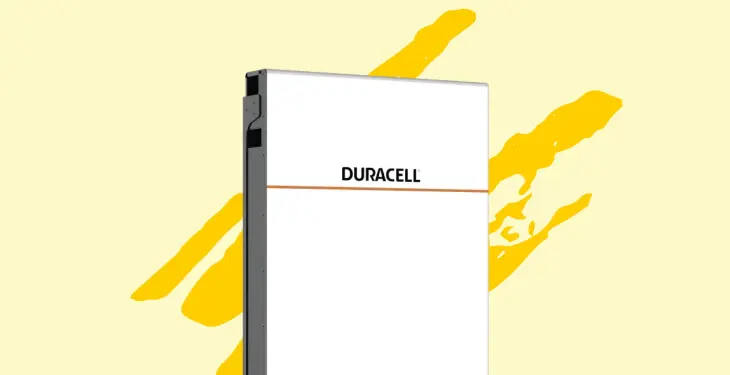

Written by Bethany Armstrong
Renewables Manager
Updated: 20th October, 2025
Even in the UK’s cloudy weather, solar panels can still produce electricity. They do not need bright sunshine all of the time.
See how much you could save with a solar & battery quote.
Many people in the UK wonder if solar panels actually work well given the cloudy and rainy weather conditions. Even in the UK, modern solar panels can generate electricity throughout the year by collecting light, not just direct sunlight. This means that homes and even solar farms can benefit from solar energy, even during typical grey British days.
Solar panels use a process called the photovoltaic effect to turn light (even on overcast days) into usable electricity for homes. As technology improves, these systems keep getting better at working in less-than-perfect weather, making solar energy a realistic option for those considering a green investment.
Solar panels are made up of many small units called solar cells. Each solar cell uses materials like silicon to turn sunlight into electricity.
When sunlight strikes the solar cells, the energy from the light knocks electrons loose within the material. This movement of electrons creates an electric current, which is the basic way solar energy is turned into usable power.
A solar power system has more than just panels. It often includes an inverter. The inverter is important because it changes the direct current (DC) made by the panels into alternating current (AC), which homes and electrical devices in the UK use every day.
Even in the UK’s cloudy weather, solar panels can still produce electricity. They do not need bright sunshine all of the time. Daylight is enough to generate clean energy, although production is usually higher on sunny days.
A simplified view of the process:
Step | What Happens |
Sunlight hits panel | Solar cells absorb light and free up electrons |
Electric current | Moving electrons create direct current (DC) |
Inverter | DC turns into usable AC for home or grid use |
Solar panels help people use renewable energy instead of fossil fuels. Over time, their efficiency (how much sunlight is turned into electricity) has improved, making modern panels better at powering homes even in less sunny climates.
Solar panels can still generate electricity in the UK, even with its often cloudy and rainy climate. Performance varies depending on sunlight, daylight hours, and the time of year.
Solar panels do not need direct sunlight to work. They use daylight, so even when the sky is overcast, panels continue to generate electricity. However, power output drops on cloudy days—most panels will produce about 10% to 25% of their maximum output compared to sunny conditions.
Monocrystalline panels, which are commonly used in the UK, are more efficient than other types in low light conditions.
Efficiency drops, but panels can still power household devices or feed electricity back into the grid. The actual output depends on panel quality, location, and the thickness of the clouds. For those relying heavily on solar, it is important to factor in these lower outputs during cloudy periods, especially during autumn and winter.
Rain itself does not stop solar panels from working. Panels continue to create electricity as long as there is daylight. Output does drop because rain clouds block some sunlight, but energy generation does not stop completely.
A benefit of rain is that it helps wash dust and dirt off the panels, which can keep them operating more efficiently. Panels on average in the UK will still produce some electricity during wet weather, just at a reduced rate.
Maintenance needs can be lower in rainy climates since panels stay cleaner. However, performance figures for rainy days are similar to, or slightly less than, what is seen on overcast days.
Solar panels produce less electricity in winter. UK winters are marked by shorter days and weaker sunlight, which reduces the total output. On average, efficiency can drop by 25% to 50% in peak winter months compared to summer.
Panels can still work when it snows, as long as the snow does not completely block the sunlight from reaching the photovoltaic cells. Light snow will often slide off the angled panels or melt quickly. In some cases, snow can reflect sunlight onto panels and slightly boost production once cleared.
Because daylight hours are shorter in winter, the amount of usable solar energy is much lower. It is important for households to consider this seasonal variation when planning total energy needs.
Solar panels are increasingly popular in the UK, offering both financial and environmental benefits. They can reduce energy bills, lower carbon footprints, and provide more independence from the national grid.
Savings from solar panel installation depend on roof size, electricity use, and system cost. Most three-bedroom homes in the UK could save between £200 and £400 per year on electricity bills with a standard 4kW solar power system.
Over 25 years, total savings can add up to roughly £18,250 for a typical household. Installing battery storage solutions can capture extra electricity, making it possible to use solar energy at night or during cloudy weather, further reducing reliance on the grid.
Table: Example Solar Panel Savings (per year)
Property Type | System Size | Estimated Yearly Savings |
3-Bedroom House | 4kW | £200–£400 |
Modern solar technology has improved grid resilience by allowing households to use more of the power they generate. Homes with high power consumption will see the greatest returns.
Last updated: 20th October, 2025

Written by Bethany Armstrong
Renewables Manager at iHeat
Bethany Armstrong is a renewables expert and operations manager at iHeat, specialising in heat pump solutions and solar project delivery across the UK.
LinkedInArticles by Bethany Armstrong are reviewed by iHeat’s technical team to ensure accuracy and reliability.

20th February, 2026
Yes, you can install home battery storage without solar panels in the UK. A battery-only s...
 Read Article
Read Article

19th February, 2026
Your Distribution Network Operator is the regional company that owns and manages the elect...
 Read Article
Read Article

06th January, 2026
These grants not only help residents save money on installation but also help lower energy...
 Read Article
Read Article
No obligation. Takes less than 60 seconds.